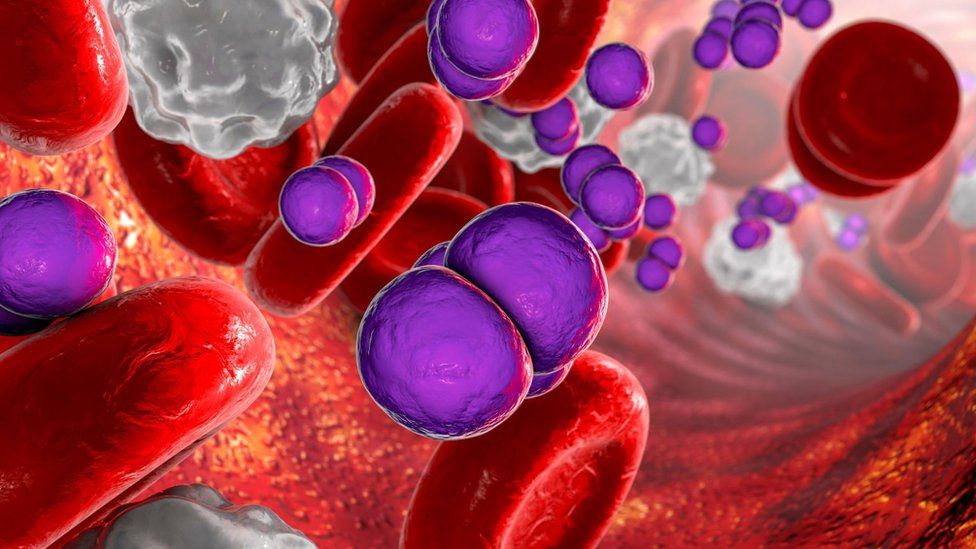Blood in urine cancer warnings to appear in men's toilets
Published10 hours agoShareclose panelShare pageCopy linkAbout sharingImage source, NHS EnglandBy Aurelia FosterHealth reporter Male cancer warnings are to appear on urinal mats in public toilets as part of an NHS England drive to increase early detection of the disease. The mats will carry a message urging men to seek help if they notice blood in their urine, which can be a symptom of bladder, kidney or prostate cancer.They will be installed in thousands of toilets in pubs, restaurants, hotels, football grounds and some workplaces.The NHS hopes to diagnose 75% of cancers at early stages by 2028. The mats are placed in urinals and designed to reduce odours.This awareness campaign follows recent NHS England research which revealed nearly half of men (49%) did not know blood appearing in urine was a cancer symptom.The survey also found that more than a third of men (39%) would wait for a recurrence of the symptom before visiting a doctor.NHS chiefs believe the scheme will take “vital cancer awareness messaging” into locations where symptoms such as blood in pee may first be noticed. Early cancer diagnosis blood test shows promiseProf Peter Johnson, NHS England’s National Clinical Director for Cancer, said the symptom “shouldn’t be ignored” and urged anyone experiencing it to “get checked out early”, as it could be life-saving.Image source, NHS EnglandAdil Malik, a kidney cancer patient from London, welcomed the initiative, after himself experiencing the symptom.Mr Malik, who was diagnosed aged 28, said: “My story shows that cancer can affect people of any age…”Prostate cancer patient Michael Sloane, 67, from Buckinghamshire, said the initiative was “an important way to ensure men get the message that if they have blood in their pee, they really need to get it checked out”. Bladder, kidney and prostate cancer are among the 10 most prevalent types of the disease in England, and generally affect men more than women. Other common symptoms include urinating very often, sudden urges to urinate, a burning sensation while urinating, a lump or swelling in the back, under the ribs, or in the neck, and pain in the side between the ribs and the hip.Under its long-term plan, NHS England set itself a goal for 55,000 more people annually to survive their cancer for at least five years after diagnosis by 2028.Plans to detect more cancers earlier include the rollout of a blood test which could detect up to 50 cancers before symptoms appear. NHS England is also planning to launch lung health checks by 2029 in order to detect lung cancer early more often.More on this storyThousands of men miss out on prostate cancer drugPublished23 OctoberBBC presenter Nick Owen reveals cancer diagnosisPublished7 AugustBlood test for 50 cancers excites scientistsPublished2 JuneTrial detects lung cancer earlier, NHS trust saysPublished17 November 2022NHS not making progress on early cancer diagnosisPublished5 April 2022Related Internet LinksNHS EnglandThe BBC is not responsible for the content of external sites.
Read more →


